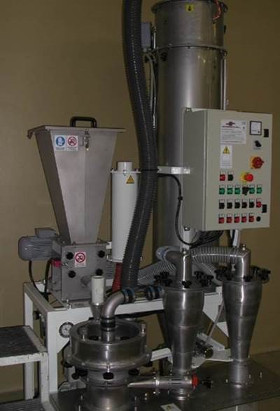 Several clinical studies from around the world show that a daily consumption of whole grain components can reduce the risk of cardiovascular disease and the development of diabetes, in addition also to a reduction in the risk of cancer and mortality. At the same time food based on grains (e.g. pasta, bread, bakery products) account for the largest contribution to mycotoxin exposure in all age classes, in particular due to the mycotoxins produced by Fusarium spp. Within post-harvest interventions devoted to minimize mycotoxins impact with respect to diet intake, one of the first effective actions is to integrate novel down-stream processing approaches. In the first year of MyToolBox EU Project, Barilla started to work on synergic potential of (pre-)milling strategies.
Several clinical studies from around the world show that a daily consumption of whole grain components can reduce the risk of cardiovascular disease and the development of diabetes, in addition also to a reduction in the risk of cancer and mortality. At the same time food based on grains (e.g. pasta, bread, bakery products) account for the largest contribution to mycotoxin exposure in all age classes, in particular due to the mycotoxins produced by Fusarium spp. Within post-harvest interventions devoted to minimize mycotoxins impact with respect to diet intake, one of the first effective actions is to integrate novel down-stream processing approaches. In the first year of MyToolBox EU Project, Barilla started to work on synergic potential of (pre-)milling strategies.
In particular, Barilla throw itself into an effort for evaluating all the relevant available technologies (within the market and scientific literature since eighties…) that can be exploited/combined together at pilot plant or industrial scale respectively. It has emerged from these evaluations that there are some concrete feasibility tests that permit to minimize mycotoxins or increase fiber content of wheat-based products. The real challenge that we are keen to win in the next 2 years is to achieve both the goals at industrial scale and in a significant way!
